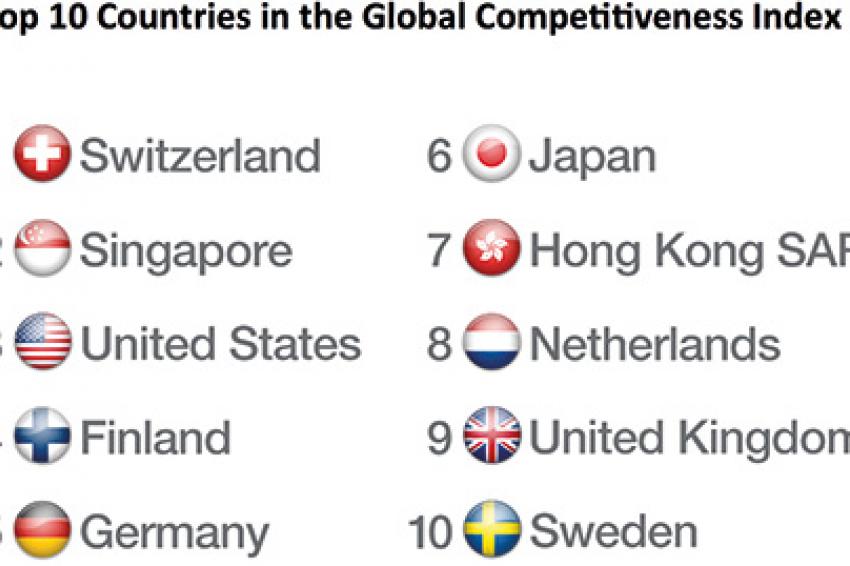
Competing for Success: The Economic Competitiveness Index

Competing for Success: The Economic Competitiveness Index
Economic competitiveness is a crucial factor in assessing a nation’s ability to attract investment, foster innovation, and sustain long-term growth. The Economic Competitiveness Index serves as a valuable tool for evaluating and comparing the competitiveness of economies worldwide. This article explores the significance of the index, its components, and the implications it holds for global economic landscapes.
Understanding the Economic Competitiveness Index
The Economic Competitiveness Index, often compiled by organizations like the World Economic Forum, assesses the factors that contribute to a country’s ability to achieve sustainable economic growth. It takes into account various indicators, including infrastructure, innovation, macroeconomic stability, health, and education. A higher ranking in the index indicates a more competitive and attractive business environment.
Key Components of the Index
The index comprises multiple pillars that collectively represent the different aspects influencing economic competitiveness. These pillars may include infrastructure development, technological readiness, market size, business sophistication, and the quality of institutions. Each component reflects a critical dimension that contributes to the overall competitiveness of a nation.
Infrastructure and Technological Readiness: Foundations for Competitiveness
Infrastructure development and technological readiness are fundamental pillars in the Economic Competitiveness Index. Strong infrastructure, including reliable transportation and communication networks, creates a conducive environment for business operations. Additionally, technological readiness, encompassing factors like internet penetration and innovation capacity, signifies a nation’s preparedness for the digital age.
Market Size and Business Sophistication: Drivers of Economic Activity
The size and sophistication of a country’s market play a pivotal role in its economic competitiveness. A large and sophisticated market provides businesses with opportunities for growth and innovation. The Business Sophistication pillar assesses the quality of a country’s business networks, the level of local supplier collaboration, and the state of its innovation ecosystems.
Macroeconomic Stability: Building Investor Confidence
Macroeconomic stability is a crucial element in the index, encompassing factors such as inflation rates, government debt, and fiscal policy. A stable macroeconomic environment builds investor confidence and encourages long-term investment. Nations demonstrating sound economic management are more likely to attract foreign direct investment and foster sustainable economic growth.
Health and Education: Investing in Human Capital
The health and education pillars highlight the importance of investing in human capital. A healthy and educated workforce is a critical asset for economic competitiveness. Nations with well-developed healthcare systems and high-quality education contribute to a skilled labor force, fostering innovation and productivity.
Quality of Institutions: Upholding Rule of Law and Governance
The quality of institutions is a key determinant in the Economic Competitiveness Index. This pillar assesses factors such as the rule of law, property rights, and the efficiency of public institutions. Strong and transparent institutions create a stable environment, promote fair competition, and enhance overall economic governance.
Global Implications: Attracting Investment and Talent
For nations, a high ranking in the Economic Competitiveness Index translates into tangible benefits on the global stage. A competitive economy is more likely to attract foreign investment, multinational corporations, and a diverse pool of talent. This, in turn, contributes to economic diversification, technological advancement, and increased global influence.
Challenges and Opportunities: Using the Index for Improvement
While the index provides valuable insights, it also highlights areas for improvement. Nations with lower rankings can use the index as a roadmap for reform and development. Addressing weaknesses in infrastructure, education, or institutional quality can enhance competitiveness and position a country for sustained economic success.
Evolving Landscapes: Adapting to Technological and Global Changes
As technological advancements and global dynamics evolve, the Economic Competitiveness Index adapts to reflect these changes. Nations must stay agile in responding to the challenges and opportunities presented by the Fourth Industrial Revolution. Embracing innovation, fostering digital transformation, and ensuring inclusive growth become imperative for maintaining competitiveness.
Strategic Planning for a Competitive Future
In conclusion, the Economic Competitiveness Index serves as a compass for nations navigating the complexities of global economic competition. Strategic planning based on the insights provided by the index allows countries to position themselves for success. Continuous improvement in infrastructure, education, governance, and technological readiness becomes the foundation for a competitive future on the global stage.
Explore more about the Economic Competitiveness Index at careerth.com
